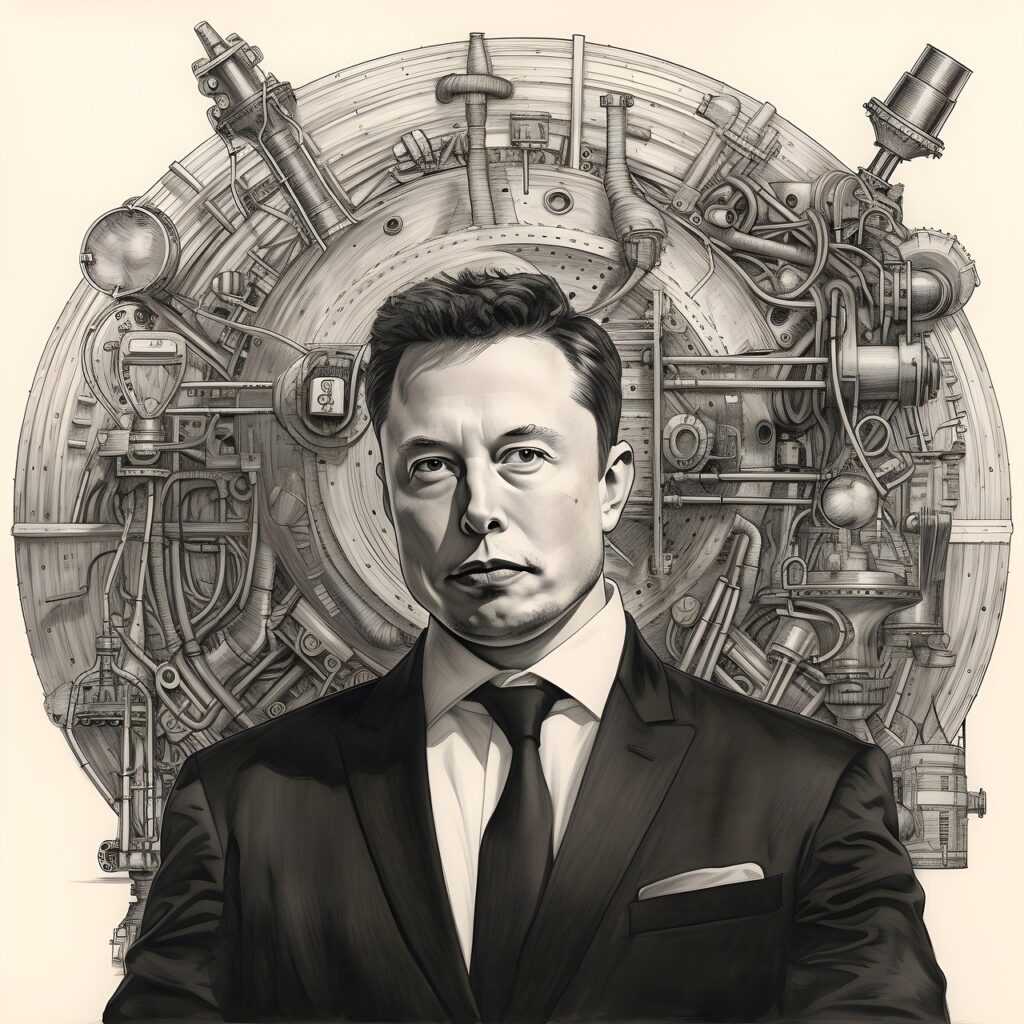Some people see Elon Musk as an innovator, others don’t know much about him beyond Tesla, and then there are others who are baffled by his nonchalant attitude, constantly working on his goals, unaware of the noise outside.
From SpaceX and Tesla to Neuralink, he is constantly juggling high-stakes ventures that could crumble with a single misstep. At least, that’s how it would appear to normal people. And you can’t help but think that his level of focus and endurance seems superhuman. But behind his bold tweets, grueling work schedule, and public controversies lies a mind trained to stay steady under extreme pressure.
Musk’s resilience isn’t an accident of his personality. It is a deliberate set of mental habits he has cultivated over decades, habits that allow him to navigate through the chaos, manage how to handle multiple rejections and controversies, and transform failures into the befitting level of success we see today.
Let’s break down the mindset that fuels Musk’s endurance and the habits that keep him mentally unbreakable, even when the odds seem fairly impossible.

Source: Pixabay
The Mindset Behind the Success – How Does He Do It?
To understand how Musk endures stress, setbacks, and skepticism, you have to look at what gives him purpose. Musk doesn’t just want to build cars or rockets. No, he wants to secure humanity’s future, a mission that seemed dauntingly impossible until he started doing it. Whether it’s making life multiplanetary or accelerating the world’s transition to sustainable energy, his ambitions are tied to something far greater than profit or fame.
This long-term, world-scale vision acts as a psychological anchor. When his companies face setbacks, like a rocket exploding or Tesla’s stock plummets, Musk doesn’t see these as personal defeats. Instead, he views them as steps toward an inevitable goal. That broader mission keeps him grounded through the turbulence of short-term failure.
In one interview, he admitted, “If something is important enough, you should try, even if the probable outcome is failure.” That single line captures his mental framework: he expects failure, prepares for it, and treats it as part of progress.
1. He Turns Pain Into Progress
Elon Musk’s career is a masterclass in how to reframe failure. Most entrepreneurs would have walked away after the kind of public setbacks he has endured: three failed SpaceX rocket launches, Tesla’s near-bankruptcy in 2008, and countless skeptics calling his ideas impossible. Yet, Musk has an uncanny ability to turn pain into momentum.
After SpaceX’s third failure, the company had just enough resources for one more launch. Musk poured everything into that attempt, emotionally, financially, and mentally. When that fourth rocket finally reached orbit, it saved SpaceX and changed the trajectory of private space travel forever.
This was beyond anything but mere luck. It was psychological resilience to keep pushing past the failures. Musk doesn’t see failure as the opposite of success but as part of the process that leads there. Every mistake provides data, and every loss becomes a prototype for improvement.
He once said, “Failure is an option here. If things are not failing, you are not innovating enough.” This philosophy transforms failure from something to avoid into something to learn from.
Here is how to apply this in your life:
- See challenges as experiments. Each obstacle is an opportunity to test, tweak, and refine your approach.
- Detach your ego from outcomes. Success doesn’t define your worth, and neither does failure — only your ability to learn does.
2. He is a Master of Obsessive Learning
Early in Elon Musk’s career, he couldn’t afford aerospace engineers, so he taught himself rocket science by reading textbooks like Rocket Propulsion Elements and Structures: Or Why Things Don’t Fall Down. He learned about energy physics, car manufacturing, and artificial intelligence the same way, through intense self-study and endless questioning.
This learning style is rooted in what he calls first principles thinking: breaking complex problems down to their basic truths and reasoning from the ground up. For instance, instead of accepting that rockets had to be expensive, he asked, “What are the raw materials that make up a rocket, and what do they actually cost?” That question led to the design of reusable rockets and drastically reduced launch costs.
This habit of deconstructing problems not only keeps Musk mentally sharp but also gives him confidence in high-pressure situations. Knowledge replaces uncertainty with control, and understanding reduces the fear of trying something new.
Here is how to apply this in your life:
- Dedicate weekly learning time. Spend at least 30 minutes a day exploring something outside your comfort zone, not for immediate use, but to stretch your thinking.
- Cross-train your brain. Read about topics unrelated to your field. Innovation often happens at the intersection of diverse ideas.
3. He Anchors Himself in Purpose
When things fall apart, most people look for an exit. In Musk’s dictionary, giving up simply does not exist. He looks for meaning behind each of the missions. During Tesla’s darkest years, he famously slept on the factory floor because he didn’t want his employees to think he wasn’t willing to work as hard as they did.
His mission to accelerate the world’s transition to sustainable energy gave every hardship a reason to exist. It turned sleepless nights and endless scrutiny into steps toward something meaningful. That clear meaning in his purpose and his ambition acts as a shield against burnout and self-doubt.
Musk’s belief that his work contributes to humanity’s survival gives him the stamina to endure criticism, exhaustion, and uncertainty without losing focus.
Here is how to apply this in your life:
- Connect daily work to long-term value. Even small, repetitive tasks feel lighter when they serve a higher goal.
- Revisit your purpose during hard times. When motivation fades, remind yourself: purpose, not passion, sustains perseverance.
4. He Uses Time as a Weapon
Rumours suggest that Musk’s calendar is famously divided into five-minute slots, a structure that might sound a bit too extreme if you think about it. However, it also reflects how seriously he values focus. With multiple companies to run, Musk’s most precious resource isn’t money or talent; it is his attention and time.
Disciplined scheduling minimizes wasted mental energy and eliminates “decision fatigue.” When every part of his day has a purpose, he doesn’t have to decide what to do next. He simply follows the schedule and focuses on getting things done for the day. This system allows him to manage chaos while maintaining control of his mind.
For Musk, structure equals freedom. The less time he spends reacting to interruptions, the more time he spends creating. It is a counterintuitive truth that the more precisely you manage your time, the less overwhelmed you feel.
Here is how to apply it in your life:
- Time-block your day. Group similar tasks and assign them specific time windows. Even short, 25-minute sprints can build focus.
- Start with deep work. Tackle high-impact projects early in the day before distractions pile up.
5. He Normalizes Criticism
Few people face as much public scrutiny as Elon Musk. From social media controversies to media backlash over failed projects, criticism is a constant in his life. But instead of hiding from it, he embraces it as proof that he is doing something significant.
Musk once noted that his success depends on doing things others deem impossible. And if you are not being criticized, you are probably playing it too safe. By redefining chaos and criticism as side effects of innovation, he protects his mental health and does not let the noise disturb his peace.
When SpaceX rockets exploded in early launches, many called him delusional. Instead of lashing out, he used the failures as data and thanked his team publicly for their efforts. That mindset of viewing criticism as information allows him to keep moving forward without being paralysed by his emotions.
Here is how you can apply it in your life:
- Accept visibility as vulnerability. The moment you stand for something bold, you’ll attract both support and criticism.
- Shift your focus. Don’t aim to be liked, aim to be effective. Great ideas rarely start with applause.
6. He Builds Scalable Systems
Seeing Musk’s resilience in his professional life, you can give some credit to his organizational skills. He builds systems that can operate independently of him so that his companies are designed to function under pressure. Whether it is Tesla’s automated manufacturing processes or SpaceX’s reusable rockets, his philosophy is simple: design systems that get stronger with stress and rise under pressure.
He also surrounds himself with brilliant teams of engineers, scientists, and visionaries who can challenge his thinking. After all, delegation is about trusting others to multiply impact. Musk’s ability to build scalable systems ensures that even when one part fails, the whole machine keeps running. On top of that, it allows him to delegate his energy into building an empire of multiple businesses, all working on seemingly impossible missions.
This approach mirrors a principle from engineering called redundancy: always have a backup process so no single failure collapses the system. In life, it translates to building habits, routines, and networks that sustain you when your motivation dips.
Here is how to apply it in your life:
- Design repeatable systems. Automate or standardize routine tasks so they don’t drain your mental energy.
- Create personal redundancy. Build routines that help you stay stable even on bad days.
Takeaway
Elon Musk’s story is a puzzle of multiple traits. From his innate genius to his limitless energy, the one thing that stands out in his portfolio is his deliberate endurance. Every system he builds, every company he starts, and every problem he tackles is grounded in one truth: how resilience can be engineered.
He does not avoid pain; he dissects it and reflects on it. His learning habits, time management, and sense of purpose form an ecosystem of mental toughness, one that allows him to recover faster, adapt quicker, and think clearly under extreme pressure. Most of all, it inspires everyone.
You don’t need to run multiple billion-dollar companies to apply the same logic. Resilience in everyday life means reframing problems as data, staying curious when others panic, and grounding yourself in something bigger than immediate results.
Because in the end, mental strength is about learning how to grow past your limits. You have seen how Musk builds his resilience, but now it is your turn. Take the quiz and discover your own true level of mental toughness.






